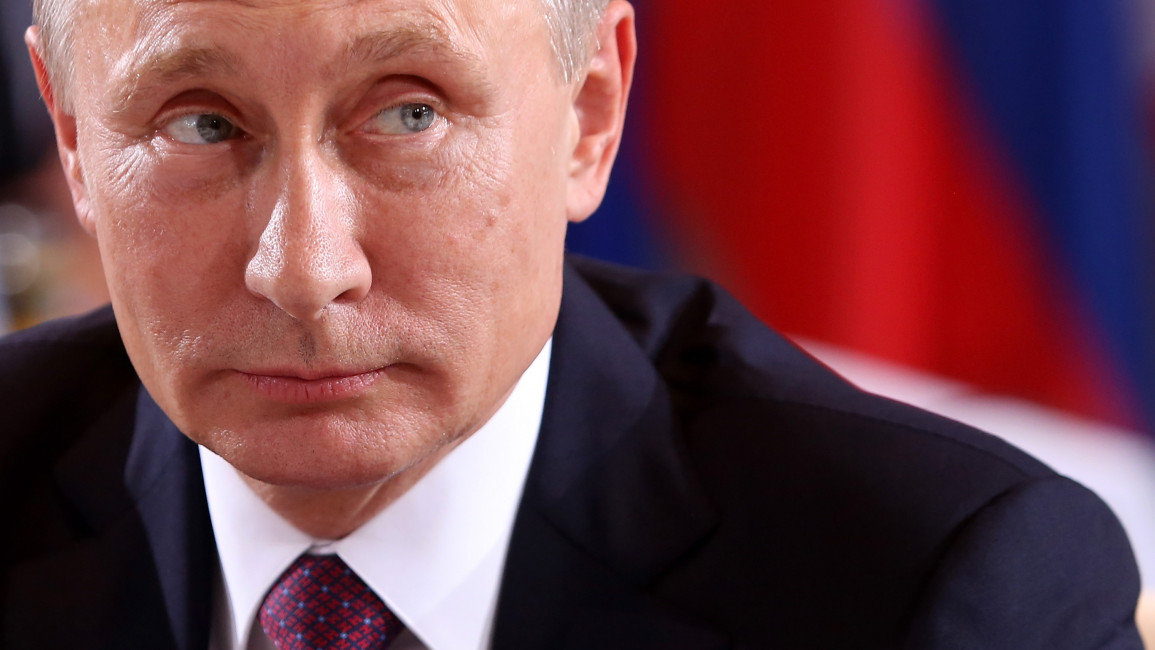Putin says Russia defending 'Motherland' as Ukraine war rages
President Vladimir Putin defended Russia's war in Ukraine as necessary to protect the "Motherland" as Moscow flexed its military muscle on Monday at a huge parade marking the 1945 victory over Nazi Germany.
Fierce battles raged in eastern Ukraine while Putin made his Victory Day speech against a backdrop of intercontinental ballistic missiles rumbling through Red Square.
The Russian leader made no major announcements on Russia's next steps but channelled Russian pride in its World War II triumph to mobilise support for the Ukraine invasion, now in its third month.
In a sign of international opposition to the war, protesters splattered Russia's ambassador to Poland with red liquid when he tried to lay a wreath in Warsaw to mark Victory Day.
The conflict is mired in the history between ex-Soviet neighbours Ukraine and Russia, with Putin saying the so-called "special military operation" in Ukraine is in part to "de-Nazify" the country.
Putin blamed the West and Ukraine for today's conflict, telling the parade that Russia faced an "absolutely unacceptable threat" and warning against the "horror of a global war".
"You are fighting for the Motherland, for its future, so that no-one forgets the lessons of the Second World War," he said.
The celebration in Red Square also featured some 11,000 troops and more than 130 military vehicles, although a planned military flypast was cancelled.
'Very serious battles'
On the ground, the key battles are being fought in Ukraine's east, which Russia is seeking to secure having tried and failed to take the capital Kyiv and the north.
The governor of eastern Lugansk region, Sergiy Gaiday, said on Monday there were "very serious battles" around Bilogorivka and Rubizhne, as Russia tries to take the Russian-speaking Donbas.
Donbas encompasses Lugansk and the neighbouring region of Donetsk.
An AFP team saw columns of trucks filled with soldiers and heavy equipment move down the main road leading away from the city of Severodonetsk, suggesting Ukraine was giving up the defence of its last stronghold in Lugansk.
Russian forces were heavily shelling the roads, while the Ukrainians were firing back to help cover the apparent pullout.
Officials said 60 civilians were killed in a Russian air strike on a school in the eastern village of Bilogorivka on Sunday -- one of the highest single death tolls since the February 24 invasion.
Pro-Russian separatists meanwhile feted Victory Day in Ukraine's devastated southern port of Mariupol, where depleted Ukrainian forces are defending their final bastion at the Azovstal steelworks.
Separatist leader Denis Pushilin and residents carried a giant black and orange ribbon of Saint George -- a symbol of WWII celebrations in Russia -- through the city that has seen some of the heaviest fighting since the invasion on February 24.
Full control of Mariupol would allow Moscow to create a land bridge between the Crimean Peninsula, which it annexed in 2014, and eastern regions of Ukraine run by pro-Russian separatists.
'We will win'
Ukrainian leader Volodymyr Zelensky invoked the ghosts of World War II to chide Russia for claiming sole credit for winning.
"We will not allow anyone to annex this victory. We will not allow it to be appropriated," he said in a video speech about an hour before Putin spoke.
Hailing what he said were Ukrainian victories against Nazi German forces during World War II, he said "We won then. We will win now."
Yet in Kyiv the commemoration day was largely shunned as life slowly returned to normal, weeks after fierce fighting raged in its suburbs.
The capital’s Maidan square was largely empty. Small patrols of police and Ukrainian armed forces kept watch with air sirens temporarily disrupting the quiet morning, as people waited for any sign from Putin of an upcoming escalation.
"Whatever he says, we need to do what we need to win and free our land. And that's it," said retired diplomat Mykola, 75.
The West, which has hailed Zelensky as a hero, rallied behind Ukraine's defiance of Russia as the historical significance of Victory Day continued to resonate.
British Defence Secretary Ben Wallace accused Putin of "mirroring fascism" and said Russia's bemedalled generals should "face court martial" for their handling of the war.
European Union President Charles Michel however found himself having to take shelter from missile strikes during a surprise trip to Odessa.
'Fascists'
In Warsaw, pro-Ukraine activists hurled red liquid at Russian ambassador Sergei Andreev and other men in his entourage at the cemetery of Soviet soldiers in the Polish capital
They chanted "fascists" and brandished the Ukrainian flag as they blocked his way, an AFP correspondent at the scene saw.
"The admirers of neo-Nazism have again shown their faces," Russian foreign ministry spokeswoman Maria Zakharova said on Telegram, repeating Russia's assertion that it is fighting neo-Nazis in Ukraine.
The fighting continued unabated on the ground.
In Severodonetsk, the easternmost city still held by Ukraine, a Ukrainian soldier with the nom de guerre Koval said that Russians had now entered its northern side.
"We are defending the southern half of the city," the soldier told AFP.
One ray of hope has come from prisoner swaps.
Ukrainian soldier Glib Stryzhko, 25, was gravely wounded and captured in Mariupol in April but finally released after a secret phone call to his mother.
"After we were loaded onto the bus waiting for us, the driver said: 'Guys, you can breathe. You are home now,'" Stryzhko told AFP from his hospital bed in Zaporizhzhia.


![President Pezeshkian has denounced Israel's attacks on Lebanon [Getty]](/sites/default/files/styles/image_684x385/public/2173482924.jpeg?h=a5f2f23a&itok=q3evVtko)



 Follow the Middle East's top stories in English at The New Arab on Google News
Follow the Middle East's top stories in English at The New Arab on Google News


